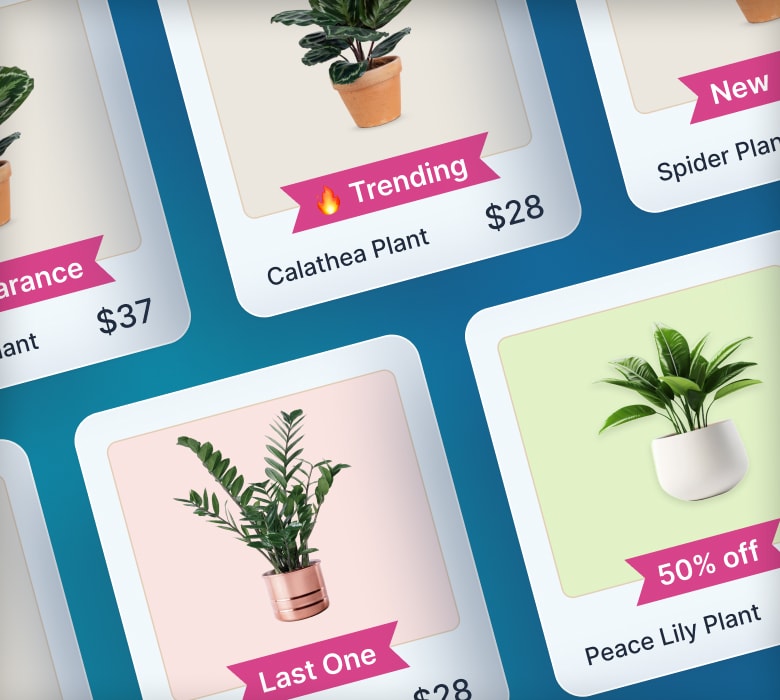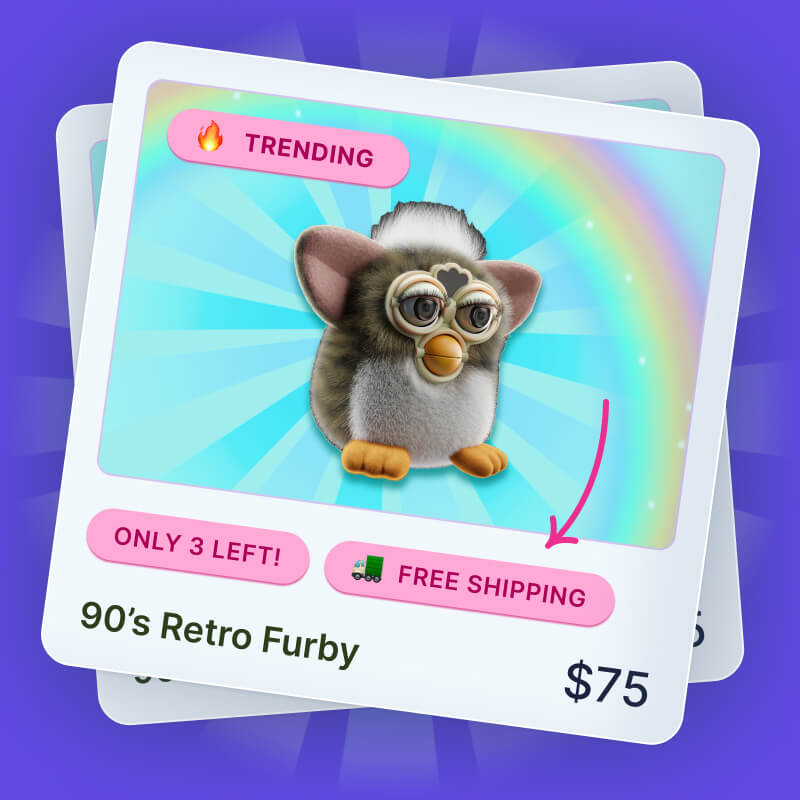White Label vs. Private Label: What's the Difference?

Thinking of selling your own products? You’ve probably heard that private and white labeling are popular solutions.
But while those two terms are sometimes used interchangeably, white labeling and private labeling are actually very different propositions.
In this article, we’ll define private and white labeling (and provide real-world examples of both), sum up the differences between these two approaches, and help you decide which is right for you.
Let’s get into it…
What Is Private Labeling?
Private labeling is when a retailer has the exclusive rights to sell a product made by a third-party manufacturer, while also controlling various aspects of the product — like its size or color, or the way it’s branded, packaged, and promoted. It’s big business, making up almost 18% of total retail sales in the US.
Example of Private Labeling
If you’ve ever stepped foot in a grocery store or supermarket, you’ll have come across dozens, or maybe even hundreds, of examples. That’s because their house brand products are almost always private labeled.
While private labeling is commonplace in the grocery industry, Trader Joe's uses it more than most. Almost everything it sells is a private-label product.
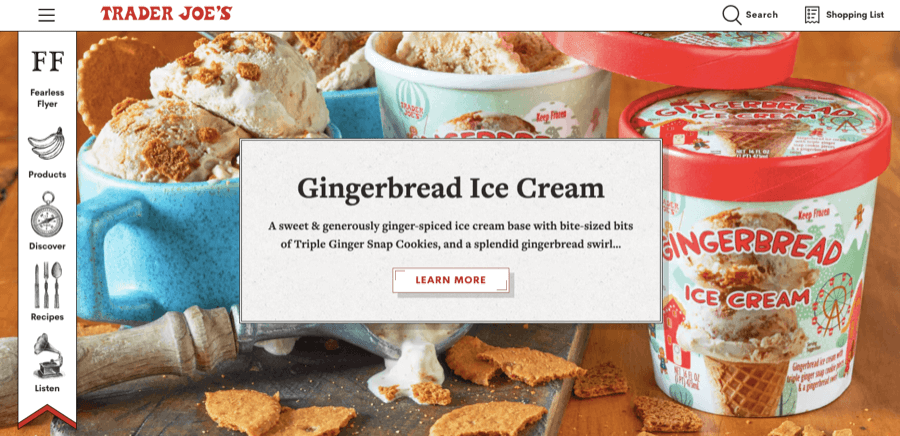
The retailer works with a massive range of private label manufacturers, including Enjoy Life, McCain, and ConAgra. But you’ll never see those names on a Trader Joe’s shelf (or on its website).
What Is White Labeling?
White labeling is when a generic product made by a manufacturer is sold by multiple retailers. Each retailer can choose how to package and label their “version” to appeal to their audience, but the fundamentals of the product — size, weight, color, etc. — remain the same.
Example of White Labeling
One of the most common use cases for white labeling is dropshipping, a form of retail fulfillment in which a store owner sells white-label products without ever getting their hands on the stock.
Notebook Therapy is a popular dropshipping store specializing in Japanese and Korean stationery.
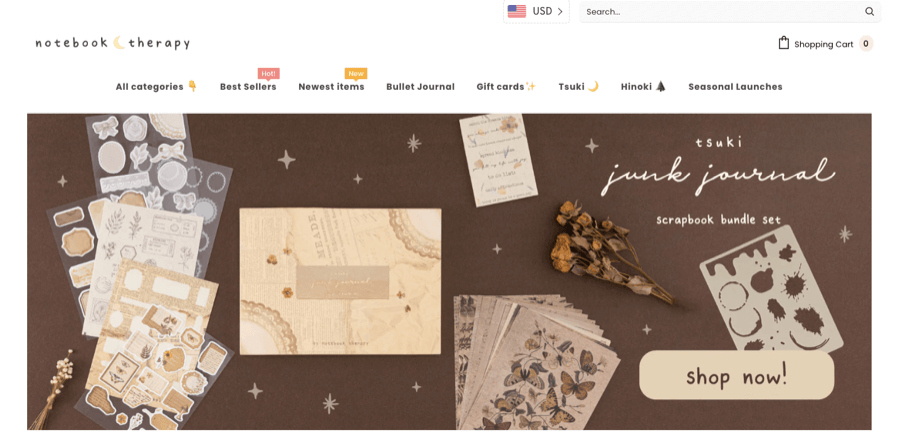
You can tell it’s a dropshipping store based on the lengthy shipping times.
Because products are shipped by a third-party manufacturer rather than being dispatched from the retailer’s own warehouse, estimated delivery times range from seven to 35 days.
Pro tip: Like the sound of dropshipping? Learn more in our guide on how to efficiently dropship on Shopify.
The Difference Between White Label and Private Label
There are plenty of similarities between white and private labeling.
After all, both involve selling someone else’s product and branding it as your own.
But there are also some crucial differences that will determine which solution is the best fit for your own e-commerce store.
White Label vs Private Label: Comparison Table
First up, here’s an at-a-glance view of the main differences between white labeling and private labeling:
| White label | Private label |
| Products created for multiple retailers | Products created exclusively for a single retailer. |
| Retailers can only change the branding, not the product itself | Retailers can customize specific product features, plus the branding and packaging, to create something unique |
| Products come to market fast because they already exist | Products take longer to come to market as the manufacturer makes the retailer’s desired changes |
| Products are (usually) cheaper | Products are (usually) more expensive |
Now let’s take a more in-depth look at the differences between the two…
Consumer Costs
White-label products are generally priced cheaper than their private label alternatives.
That’s simply because it’s more expensive for manufacturers to produce private label products, which are exclusive to individual retailers and may require significant customization — not just to the packaging and labeling, but to the product itself. It’s substantially cheaper (and quicker) for them to mass-produce generic white label products, then simply apply different labels for each retailer.
And those savings can be passed on to the consumer.
Speed of Selling Products
Because the branding is the only element of a white-label product that features any customization, it’s faster to get these products from the manufacturer’s production line to the retailer’s shelves.
This makes white labeling a good fit in trend-driven niches where being one of the first to market can have a huge impact on sales.
In other words, if speed is the most important factor, white labeling is a better choice than private labeling.
Pro tip: Not chosen an e-commerce niche yet? Check out our guide on what to sell on Shopify.
Marketing and Advertising
Sure, white labeling comes out on top for speed and price.
But when it comes to promoting a product, private labeling wins every time.
Fact is, it’s extremely difficult to differentiate a white label product because it’s generic. Multiple retailers are selling exactly the same item, and the margins tend to be tight, so there’s not much room to compete on price.
That means branding is your only unique selling point (USP) — and if you’re competing with household names, it’s a tough battle to win.
Because private label products are exclusive to each retailer, they’re way easier to differentiate, which makes for easier and more effective marketing and advertising campaigns.
Unique Features
With white labeling, there are precisely zero unique features (unless you count the product name, label, and packaging).
Private label products offer far greater scope for customization.
For instance, imagine you want to sell private-label scented candles. Great idea, the world definitely needs more scented candles!
Your private label manufacturer will give you the freedom to play around with various characteristics, like the size, shape, color, and scent. Just hand over your preferences, and they’ll turn them into something unique to your brand.
Product Niche
Some niches are better suited to white labeling, while private labeling is more common in others.
For instance, private labeling is popular in industries where the products are comparatively simple and require significant differentiation, such as the fashion market.
Because it’d be tough running an e-commerce store that only sells generic white T-shirts, right?
Meanwhile, white labeling works best in markets where unique features just aren’t that important. The tech niche is a good example: brands often use white labeling to sell important-but-dull products like batteries and TV remotes.
Return on Investment
White-label products typically require less upfront investment from the retailer because they’re generic and mass-produced. Theoretically, that means you can turn a profit fast.
But it’s not quite that simple.
While the products are generally cheaper with white labeling, the lack of differentiation might force you to invest more in marketing and advertising to drive sales.
And the competition is high because you’re selling a generic product stocked by multiple other retailers, which might force you to sell at a lower price point — thereby eating into your margins and limiting your ROI.
The opposite is true of private labeling: you’ll likely have to spend more buying and customizing the product. But once you do, you may be able to sell at a higher price point, resulting in a higher return once you recoup the initial costs.
Licensing
Typically, retailers selling white-label products don’t have to worry about complex legal issues because the manufacturer has already obtained all the necessary licenses for their generic goods.
That may not be the case with private labeling, as the retailer might have to go through lengthy legal processes before they can start selling their unique, customized products.
Deciding Which is Right for You: White Label vs Private Label
Still not sure which approach is best for your e-commerce business? Let’s look at some of the scenarios that are best suited to either white labeling or private labeling:
When To Choose White Labeling
- You need to get your product to market fast.
- You already have a strong brand to support your marketing and advertising efforts.
- You’re able to reduce costs by buying in bulk, giving you more attractive margins.
- You’re in a niche where branding and packaging are just as important as the product (like cosmetics or food and drink).
- Your audience only cares about the functionality of your product, not how it looks (like with batteries or TV remotes).
When To Choose Private Labeling
- You want greater control over product pricing.
- You need a unique product to stand out in a competitive market.
- You’re happy to sacrifice a fast launch for the potential of higher, longer-lasting returns down the line.
- You have specific needs that can’t be met by white-label manufacturers.
- You can afford to invest more time and money upfront to bring the product to market.
White Label vs Private Label FAQs
What Is Considered “Private Label”?
A private label denotes a product that has been exclusively made for a retailer by a third-party manufacturer and that has been customized based on the retailer’s requirements. For instance, a retailer selling private-label candles might ask for the product to be of a specific size, color, and scent.
What are Examples of Private Label Brands?
There are countless examples of private-label brands, some of which have become household names in their own right. Examples include:
- Simple Truth: Supermarket chain Kroger’s flagship natural and organic brand.
- Great Value: Walmart’s house brand, featuring products manufactured by companies like ConAgra and Sara Lee.
- Universal Threat: Target’s house brand for women’s denim and other fashion products.
Why Is It Called White Label?
The phrase “white label” derives from the practice of manufacturers placing blank labels on the packaging of generic products. Retailers can then add their own branding to these products, making it look like they produced them in-house.
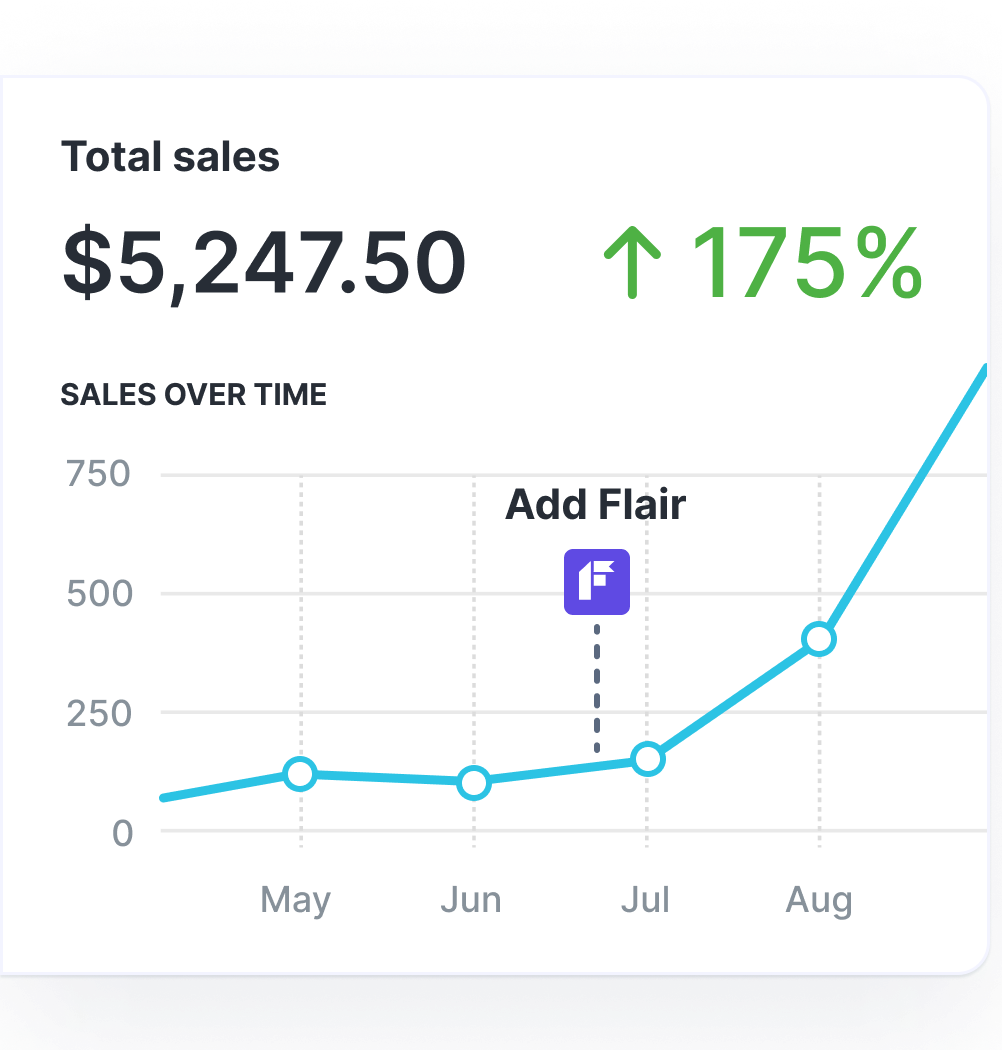
Grow Your Shopify Sales by over 175% with Flair
-
Increase sales using product badges and sales banners
-
Maximize conversions with scarcity, urgency and countdown timers
-
Automate promotions with targeted rules and scheduling

